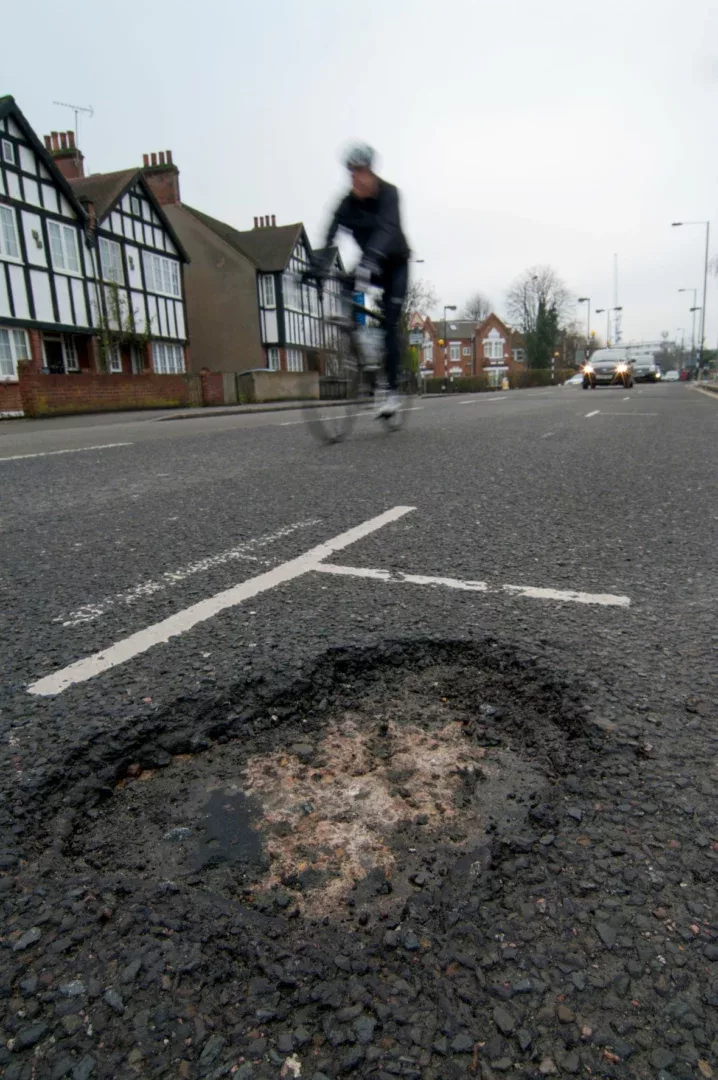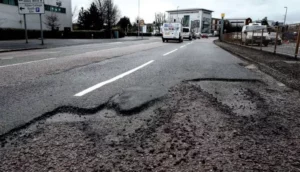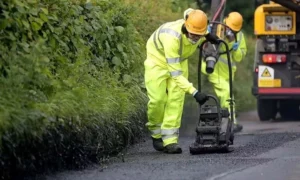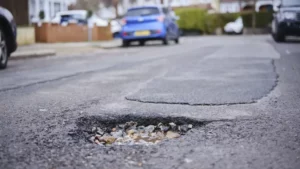The backlog of carriageway repairs to fix local roads in England and Wales has reached £12.64 billion, compounded by increased costs caused by rising inflation, reports this year’s Annual Local Authority Road Maintenance (ALARM) survey.
This is up from £10.24 billion last year and despite an increase in average highway maintenance budgets (up 4% on 2020/21), the proportion being invested in the carriageway itself is down and the reported backlog of carriageway repairs has increased by almost a
quarter (23%) on last year’s figure to £12.64 billion – or £61,700 for every mile of local road in England and Wales.
Highways News has reported that highway authorities have had their capital highway budgets have been frozen until at least 2024/25, representing a real terms reduction of between at least 18-25%, despite the October Budget and Spending Review giving £2.7 billion over the next three years for highway maintenance for those authorities not receiving a city region type settlement.
Rick Green, Asphalt Industry Alliance (AIA) Chair, said: “Local authority highway teams have a legal responsibility to keep our roads safe, but do not have the funds to do so in a cost effective, proactive way. As a result, while they report some slight improvements in surface conditions, the structure of our roads continues to decline.
“Although surface repairs have a part to play in extending the life of local roads, short-term fixes, including filling potholes, is indicative of a network that is ‘on the edge’ and less efficient and sustainable when it comes to materials usage and whole-life carbon emissions.”
This year marks the 27th successive ALARM survey, which received a record number of responses from 73% of local authorities in England and Wales. It reports local roads funding and conditions based on information provided directly by those responsible for its maintenance.
Paul Boss, Chief Executive of the RSTA said: “Yes we need more money to keep our local road network in a safe and decent condition. But regardless of how much money is available, the most efficient and sustainable way is going to be prioritising keeping the ‘green’ roads from slipping into ‘amber’ and the ‘amber’ roads from going into a red condition because that will always cost more money in the long-term as more roads head into the worst possible condition and therefore even more money needs to be spent on repairing them.”
The findings of ALARM 2022, which relate to the 2021/22 financial year, show
that in England and Wales:
• Local authorities would have needed an extra £1 billion last year just
to reach their own target road conditions, before even thinking about
tackling the backlog of repairs
• Almost one in five local roads could need to be rebuilt in the next five
years – nearly 37,000 miles of the network
•One pothole is filled the equivalent of every 19 seconds
• Roads are only resurfaced on average once every 70 years.
Rick Green added: “The link between continued underinvestment and the ongoing structural decline and below par surface conditions of our local roads is clear. The country’s ambitions to encourage active travel, plus cutting waste and carbon emissions, will not be achieved with a short-term approach that can’t deliver a first-rate local road network.
“Recent government announcements regarding three-year spending on maintenance (for England) are a step in the right direction but don’t go far enough. To ensure we have a safe, resilient, sustainable network on which we can all rely, a longer-term approach and significant investment is still needed across the country.
“The longer it takes for the funding to be put in place to tackle the backlog of repairs, the more it is going to cost to put it right in the future. Four years ago, the AIA calculated that an additional £1.5 billion per year was needed for 10 years to bring local roads up to scratch. In the meantime, the network has continued to decline and ALARM 2022 indicates that an additional investment of more than £2 billion a year over the next decade is now
needed.”
Reacting to the results of this year’s survey, Local Government Association (LGA) Transport spokesperson, Cllr David Renard: “Despite the efforts of councils, which repair a pothole every 19 seconds, these stark new figures show our local road repair backlog is rising. To clear this growing backlog, councils need further government investment and certainty over future
funding over the next decade.
“Roads are the most important transport infrastructure in the country. The ability of councils to improve local transport connectivity and infrastructure is critical to levelling up the country,
supporting our long-term economic recovery from the pandemic and reducing transport related carbon emissions to meet the country’s net-zero targets.”
Steve Spender, Chief Executive of the IHE said: “Highway authorities put great effort (and funding) into dealing with surface defects such as potholes but, as highlighted
by this year’s ALARM survey, there is not sufficient funding available to deal with the deterioration in the structural condition of the local networks and this remains a matter of concern.
“With a 23% rise in the reported backlog required to bring our local roads up to an acceptable standard, greater investment is needed to redress the balance and enable structural repairs to be undertaken. This is needed to enable local highway engineers to continue to protect their networks.”
President of LCRIG, Will Britain, added: “With a continued squeeze on local highway authority budgets it is becoming increasingly difficult to maintain roads to a standard that people expect and deserve. Longer term planning is key to enable more efficient and effective planning and delivery.
“At LCRIG we continue to make the case for local roads and will work with our council members, the supply chain and key partners, including the DfT, to make sure that this message is delivered loud and clear. The work of local highway teams must be recognised and reflected through funding which will subsequently ensure that road users see improved
highways.”
The full ALARM Survey can be downloaded here: Annual independent survey – AIA The Asphalt Industry Alliance (asphaltuk.org)
Tomorrow Highways News will publish its weekly podcast-Highways Voices-that includes an interview with AIA Chair, Rick Green.





















